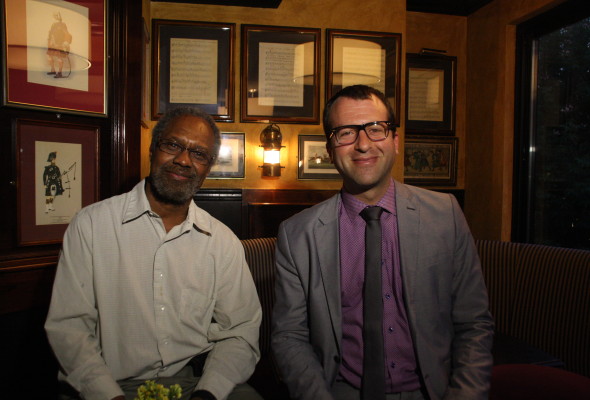Let's start with a bit of common ground.
Truth is, there are a lot of people who aren't happy with the status quo in the West. We are disillusioned about policy makers and the policy making process; we're frustrated with the bleed of work into personal life, or vice versa; we worry that some nebulous other is taking away our identity.
That's the starting point.
Clearly, though, folk like
Toronto-born terrorist Farah Shirdon have steered way of course, clearly. I mean, bullying your employees, talking down to a service person, even being racists or homophobic - it's convenient, it's an ego boost, it's funny in an ignorant way. But beheading people alive? Where does that get fun?
There is understandable concern at all levels about the emerging threat of radical Islam among young, Western-born youth. Part of this is practical - one of these kids could do on a murderous rampage, or become a suicide bomber. Part is more grandiose - is radical Islam an infection, creating a zombie hoard of mindless beheading monsters who will stop at nothing until everyone they see as not them is dead or enslaved?
Another part, however, is existential - if kids born and raised in an imperfect, yes, but better-than-the-alternative democratic society are willing to give this up, move to the desert and take up barbarism, what does that say about the system itself?
I get the concerns, and totally appreciate the connection to radical Islam. I'm less worked up about the infectious ideology as Islam, though. It could just as easily be Christianity. In fact, it was, in a previous time period - if anything, the ISIS migration can be seen as Islam's version of the Crusades.
There's no doubt that youth are buying in to the messaging ISIS is spinning; paradise, destroy the infidel, burn the corrupt west, so on and so forth. But what, really, is it that they are buying in to?
Let's step back a second and look at a couple of the myriad inconsistencies of the ISIS ideology.
They want to have "their" land and be left to it. Fine, they're North Korea. But they also want to fly their flag over the White House. That means they aren't content to have "their" land, they want to take over the world.
Even if you frame this as killing infidels, it actually amounts to imperialism, which is not part of standard Islamic ideology.
Young ISIS recruits are "tired of oppression" at home and joining ISIS, where they get to oppress the population of countries they frequently have no familial link to. Again, it's not about rejecting a system of oppression so much as wanting to be the oppressor.
The same applies to wanting the freedom to practice Sharia, but rejecting the choice of others to not practice Sharia.
Take all of these points - rejection of someone else's oppression, wanting to be the oppressor; inconsistent premise of wanting to be left alone, but wanting to be in control, the distaste with decadence and wanting not to be exposed to it, the belligerence, ignorance, superiority complex, on and on it goes, the intentional, anger-drive brutality - the picture this paints isn't the one ISIS would have us see.
This isn't God's army imposing Armageddon. Quite the opposite - it's a group of primarily disenfranchised men rejecting not democracy or Western decadence, but self-regulation, discipline and the thin veneer of civility that separates us human animals from other animals.
Which brings us to another key element of what ISIS is about that these young recruits tend not to boast about so much - women.
Part of the "filth" they are running away from is clearly the preponderance and power of the opposite gender. In this regard, these recruits aren't much different from Elliot Rodger.
ISIS is absolutely a threat, but not for the reasons we think. As such (and not being part of any security/intelligence apparatus) I'm not sure we're setting up to combat it in the right way.
The ideology of ISIS is about submission to the limbic brain, not god. You can't stone reactive fear and anger further into the stone age, but you can both cure and inoculate the Heart of Darkness with a little bit of light.
Or put another way - what these misbehaving boys need is a woman's touch.



